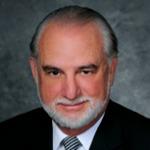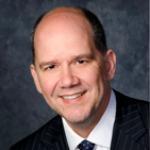Cuba: A Changing Course
An Established Columbia Law School Course on Cuba is Even More Relevant Now that the U.S. Has Renewed Diplomatic Relations With the Country
New York, February 9, 2015—When President Obama announced in December 2014 that the United States would resume diplomatic relations with Cuba, Augusto E. Maxwell ’90 immediately thought of the Columbia Law School course he teaches each spring called Cuba: Law, Policy and Transition.
“We’ve been thinking about this moment in our class for five years,” Maxwell said. “It’s gratifying to see how much is playing out in the way we thought it might.”
Maxwell, whose parents emigrated to the U.S. from Cuba before he was born, co-teaches the upper-level seminar with Pedro A. Freyre, a Cuban-born American who came to the states as a child. The class is one of just a few substantive courses on Cuba in American legal education and one of the most comprehensive. Both Maxwell and Freyre maintain a robust law practice in U.S.-Cuba transactions from the Miami office of Akerman, a law firm known for its expertise in Latin America. They created the Cuba course specifically for Columbia Law School five years ago after Maxwell, a former Harlan Fiske Stone Scholar, discussed the idea with his friend and former classmate, Columbia Law School Professor Curtis J. Milhaupt ’89.
| Pedro A. Freyre, left, and Augusto E. Maxwell '90 co-teach an upper-level seminar on Cuba. |
In the wake of the sudden news that the U.S. would end a decades-long freeze between the two nations, interest in the course spiked. According to Freyre, he and Maxwell have received more applications than usual for the class.
The seminar covers Cuba from its Spanish colonial legacy to the present day, explores how the country might transition from its current legal and economic model, and features guests speakers including Cuban scholars and diplomats. In addition, both Maxwell and Freyre are able to draw from their personal experiences and ties to the country, including the failed CIA-backed Bay of Pigs invasion: Maxwell’s father was a member of the Bay of Pigs brigade although he never saw action; Freyre’s brother was a prisoner, brother-in-law was killed, and father, Ernesto Freyre, helped negotiate the release of the prisoners in 1962.
The course has received overwhelmingly positive reviews from students. Rosa Indenbaum ’14, who took the course last spring and is now a fellow at Defenders of Wildlife in D.C., said the professors’ passion for and dedication to the material was evident in every class session. She said the course was one of her favorites at the Law School.
“It was a very different viewpoint from all my other classes,” she said. “Instead of talking about how law influences the rest of society, we talked about how the Cuban people, history, culture, politics, language, and economics shaped Cuban law. It flipped the normal perspective on its axis.”
Each semester, Maxwell organizes a trip to Cuba for interested students, handling a complicated approval process—one that should become easier under new U.S. policy. It’s a unique opportunity for students to see on the ground what they have learned in the classroom.
“One of the perspectives of the course is understanding the scope and limits on U.S. foreign policy both in nation-building and in the use of the embargo,” said Maxwell, an Akerman partner. “I hope my students leave the class with a deeper appreciation and humility about what the U.S. can do to exert its influence abroad.”
Benjamin Hedrick ’11 took the course the first year it was offered.
“I think the biggest takeaway was that, just because a country is small in terms of population, that doesn’t mean it can’t play an extremely important role in international geopolitics,” said Hedrick, who now works as an assistant county attorney in Miami.
Since the U.S. and Cuba have re-opened diplomatic channels, the course will be more valuable than ever, especially for students who hope to work in business, trade, or other areas in which an understanding of Cuba will be crucial.
“Until today, it’s been very difficult to even think about doing work related to Cuba,” Maxwell said. “Now would be the opportunity to get in on the ground floor.”
Freyre, chair of Akerman’s international practice, agreed.
“This would be the equivalent of having a course on Poland in 1990 when Poland opened up to the West,” he said.

